Well, it’s the 25 year anniversary of the Zephyr, and it’s been difficult for me to think of something to write this issue. I feel unqualified, as you might imagine, to write about the long history of the paper, since I’ve only been on board the past five years. And I have little to contribute on the topic of the history of environmentalism, or Southeast Utah, or Edward Abbey. When Jim and I first met, nearly five years ago, I was completely unaware of his paper. Though I had grown up on the fringes of what one might call “The West,” in South Dakota, I was living on the East Coast at that time. The Southwest was a place I had driven through, on half a dozen family trips, on the way to visit relatives in California, and the area held no particular fascination for me. I didn’t even think of myself as an environmentalist, except in the most vague sense.
It’s quite a coup, really, that I ended up Co-Publisher of a paper born in Moab, Utah and primarily concerned with the history and the environmentalist movement of the Desert Southwest. You, dear reader, could quite understandably believe that I have no right to have taken this role, running the paper alongside Jim, with so few relevant qualifications. I wouldn’t argue with you. So perhaps the only subject for me to speak on authoritatively, on this 25th anniversary, is the subject I know best—my husband, Jim, and the reasons why I jumped ship on my old life in order to join with him and his paper.
When I first came on board, I went through an understandable catch-up period, during which I read Jim’s book, saw the Brave New West documentary, perused the paper’s archives, and Googled every article about Jim I could find. Thanks to my extensive researching, and Jim’s stories, I got a pretty decent handle on the history of the first 20 years of the paper. I learned quite a bit about the history of Moab too, both recent and distant. I learned hundreds of names of past and current contributors, advertisers, and friends met along the road. I learned enough to recognize exactly what made the Zephyr so special—that lovely combination of humor and the earnest pursuit of the facts.
And, of course, I soon figured out that Jim has a reputation for being “grumpy.” One of the first articles I read about him, in fact, was titled “Canyon Country Curmudgeon.” And I’ve read angry emails from folks who believe that Jim is “mean-spirited” in his criticisms of environmentalist groups. I suppose it’s an easy rationalization for an environmentalist (who is quite accustomed to thinking him or herself above the moral fray,) to construe any criticism as “meanness.” It’s the same story as when some Democrats think it’s “mean” to criticize President Obama for behaving just like his predecessor. When you believe yourself to be morally superior, and then are presented with facts to suggest you aren’t, what can you do? To acknowledge the facts is to shatter your sense of self-righteousness. Facts can’t be argued away. But you can certainly go after the person presenting them. He’s being “mean.” She’s “attacking” you. Surely, their arguments are just manifestations of their own “anger issues.”
But I have never once witnessed Jim attacking anyone personally in his articles. I’ve never seen him print a malicious description of any person, no matter what that person has said about him.
What Jim likes are facts. Numbers. Dates. Accurate quotations. He’s like President Truman, who, when a crowd member yelled, “Give ’em Hell, Harry!” replied, “I don’t give them Hell. I just tell the truth about them and they think it’s Hell.”
Of course, there are drawbacks to marrying a man who can quote you back to you verbatim. It’s an unfair advantage in a disagreement, that’s for sure. Or it would be, if my memory for dialogue weren’t even sharper.
It never ceases to amuse me that people assume Jim’s hard and fast dedication to the truth must translate into a “grumpy” personality. And, yet, people seem to assume that I’m really friendly. I understand the latter part to an extent–after all, I’m a soft-spoken blonde woman who’s been socialized South Dakota-style to smile even when I’m uncomfortable. But I’m definitely not the more sociable member of our family.
I guess I would describe myself as “quiet.” When I’m on my own, I don’t go out of my way to speak to people. I can spend an entire day running errands without any conversation beyond “Hi,” and “thank you,” and “have a good day.” And I enjoy the silence. On my own, I’m the sort of person who chooses self-checkout aisles.
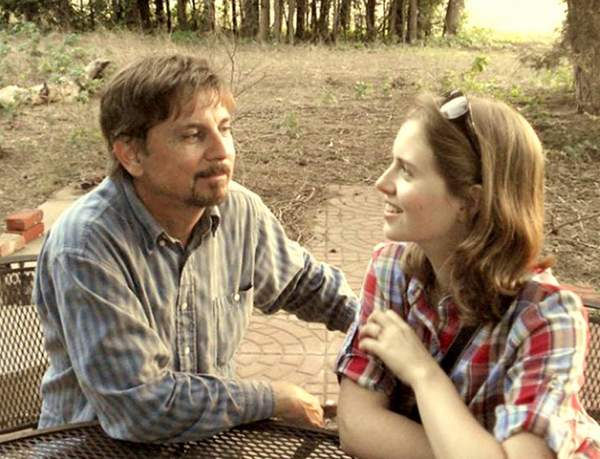
With Jim in tow, running errands is a much more social experience. He is far more likely that I am to find out that the sales clerk doesn’t like the cold weather. That the hotel manager has an allergy to peanuts and is dreading the road construction on her street; that the waiter wishes he could have a dog in his apartment.
You might think this would be a terrible clash in personalities—one person shy, the other outgoing—but as time passes, I’ve found that I appreciate being drawn into Jim’s conversations.
Just last week, for example, we were visiting our nearest city, looking to find a few items we can’t buy closer to home. We’d come through town once a month or so for nearly four years, but never had made time to visit the art museum. This time, we stopped to check it out. The collection was impressive for a small museum, and so we stopped into the gift shop to see if we could find a poster of any of our favorites. We found one we liked, of a less well-known Edward Hopper painting, and purchased it at the counter. As an older gentleman rang up our purchase, I nudged Jim. “Looks like he has your taste in books,” I murmured and pointed to Doris Kearns Goodwin’s latest, which lay bookmarked next to the register.
That was all it took. We spent nearly an hour in the gift shop, talking with the fascinating man about Theodore Roosevelt and labor unions and the death of manufacturing in America. The man at the museum spoke about his grandfather, a Union leader in Youngstown, Ohio. He himself had worked in the leather tanning factory as a young man. Leaving out a great chunk of the story, he moved on to tell us how he’d been a professor at the local university for over thirty years, and a member of the Symphony for nearly as long. This job, working at the art museum, was his retirement, and he seemed to take pleasure in watching the class of first graders gathering for their tour outside his shop window.
In short, he was absolutely charming. And I never would have heard his story, had I entered the shop on my own.
I have a million examples of this, and most are just tiny things—a shared joke in a hardware store, a family history from a restaurant owner, a philosophy of hard living from an electrician. Later that same day, as we were heading home, we spent another hour in conversation with the owner of an antique store, who was bewildered at the number of family photos people had sloughed off on him at estate sales. “Even baby photos,” he sighed, more than once. “Wouldn’t you want your family’s baby photos?” And he pulled out his favorite, a toddler wearing a indecorously cockeyed facial expression and kicking up one confused leg, from behind a row of framed portraits.
Jim likes meeting people. He likes stories. Of course, there are certain types of people Jim doesn’t like—people who enjoy wielding power, people who are obsessed with profit, and chiefly, people who chase power and/or profit, but who present themselves as paragons of virtue. What frustrates Jim the most is hypocrisy. He’s wrestled with the topic for years. If anything, his fateful split from the Mainstream Greens in 2001’s “It’s Time to Look in the Mirror” arose from a realization that he along with the other Moab Greens were moving in a direction that would betray their own ideals. Since then, his dedication to avoiding hypocrisy has probably cost him as much in lost salary as it has in lost friendships.
In this way, I’m afraid Jim is a tragic optimist. I say optimist because, if he didn’t still believe that people are fundamentally trustworthy—that they mean what they say, and that they will choose kindness and honesty over their own gain, then he wouldn’t so often put himself in a position to be disappointed. Tragic, from my perspective, because people are so often disappointing.
Again, most people wouldn’t suspect that I’m the cynic of our marriage. I’m the one who says, “Well, we’ll see,” and “Make sure you get that in writing,” and “We should probably have a backup plan for when that falls through.” I expect our computers to be glitchy and unreliable. I expect the contractor to forget to send the estimate on fixing the roof; I expect a telemarketer to call during dinner, and a friend to spill a secret. I expect that people will be selfish—not evil, mind you, but forgetful and preoccupied. When those expectations pan out, I’m not surprised, and so I stay fairly calm. And when people are unexpectedly kind or thoughtful, I enjoy being pleasantly surprised.
It is cynicism, pure and simple. I don’t claim it as a virtue. If anything, I wish that I could be more like Jim. It would be a better world, certainly, if we all anticipated more of each other. To my eyes, the message of the Zephyr, more than anything is, “We can do better than this.” And nothing pleases Jim as much as someone living up to their best intentions. The greatest joy of living in our small town, in fact, is seeing how often Jim is delighted by the kindness of our rural neighbors.
For instance, just this week, a farmhouse burned down outside our town. The tragedy made the weekly paper, four days after the fire, but by that time the small town network was already in full swing. Within hours of the disaster, dozens of people were arranging food, clothing, and babysitting for the family. Donations piled up in the local churches. Local restaurants held fundraisers. Jim and I agreed, for once, that people could be truly remarkable in their generosity. And that rural people, in particular, can be remarkable in their perseverance. He pulled me over to his computer the other day to show me a status update from the family, posted just after their home had burnt to the ground. “The house is gone,” it read. “We are here and God is good.”
“I wish I could be like that,” Jim said. And I agreed. Sometimes people are just amazing.
This is what I can tell you about the Zephyr: I’ve never read a less grumpy paper. And I’ve never known a less grumpy person than Jim. Frustrated, yes. But, for 25 years, Jim has spotlighted the most colorful characters and storytellers, the most earnest explorers and historians, that the Southwest has produced. He has befriended miners and painters, rednecks and hippies, because, to him, everyone who tries to live with integrity is worthy of being heard. It’s the most admirable philosophy I’ve ever encountered, and it’s the reason I signed on, for both the paper and the husband.
The Zephyr may not have a place at the party—amongst the noise of modern life, the TV jingles and flashy internet promotions, clanging out messages of narcissism and self-gratification. It will probably always be a fringe paper, for people who don’t confuse dissent with disloyalty, or packaged recreation with solitary exploration. But that doesn’t mean we’re grumpy. We’re still here, after all. And we’re still clinging hopelessly to those things worth saving.
Tonya Stiles is Co-Publisher of the Canyon Country Zephyr.
To read the PDF version of this article, click here.
To comment on this article, scroll to the bottom of the page.
Don’t forget the Zephyr ads! All links are hot!



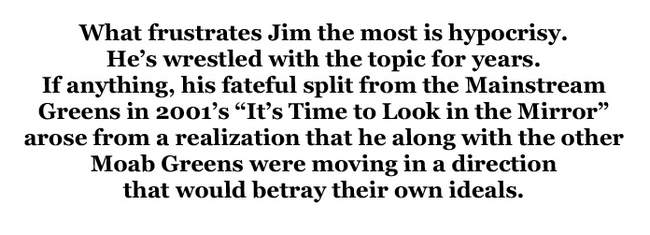
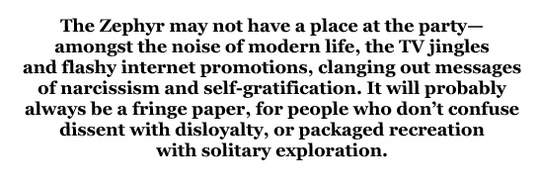

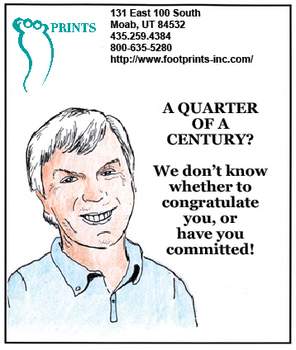

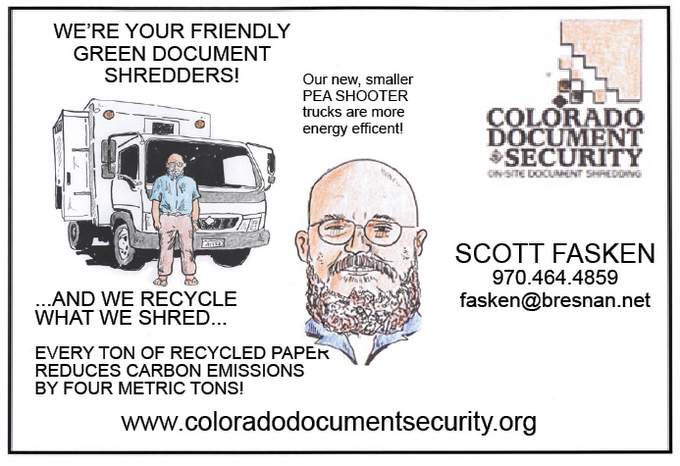
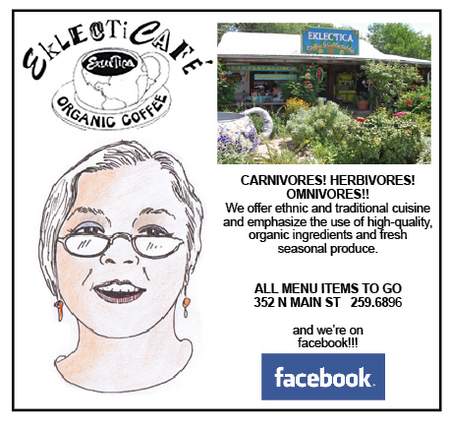
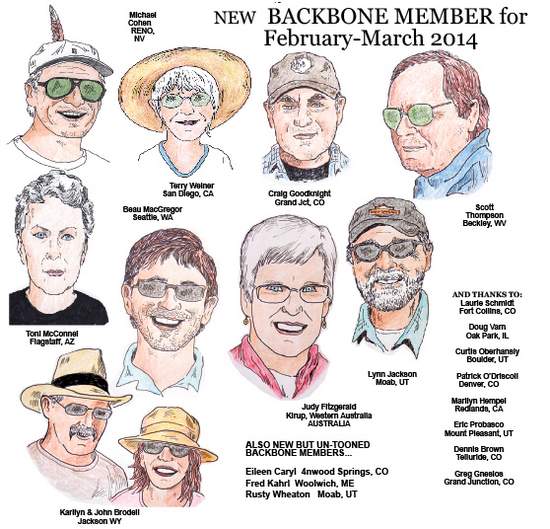
Just adding my congratulations to the many others for hanging in there and being heard (or at least speaking out) for the last 25 years. As the saying on my emails goes: “You can’t control the length of your life, just the depth.” Yours is wide and deep. Keep it up.
Well said, Tonya! Though my time knowing Jim was brief, I couldn’t agree more!
Thank you Tonya
This tribute was insightful, fair and revealing. Jim with his passions and talents to write about our sacred relationship with the earth is a treasure. It pleases my heart that you 2 are together.
Although I’ve never met Jim in the flesh, we have, like so many others I imagine, corresponded over the years in mutual concern and love for the Utah canyonlands. It’s nice to know that you two are putting smiles on each others’ faces and have every intention of carrying on the “Zephyr dialogue” for years to come.
Tonya, I had the pleasure to correspond with Jim and meet him in southeastern Utah in summer 2013. He sure didn’t strike me as grumpy! People can mistake passion and forthrightness for grumpiness. I understand completely where Jim is coming from. I am a lot like him although I wish I had a fragment of his writing talents to express myself as clearly and effortlessly as he does. We share a passion for the Colorado Plateau’s wild places and Edward Abbey. Jim’s writing reminds me a lot of Mr. Abbey. I am very appreciative of Jim’s longevity and earnestness in fighting the good fight these past 25 years. I hope you two have the energy and enthusiasm for 25 more! Thank you!!!